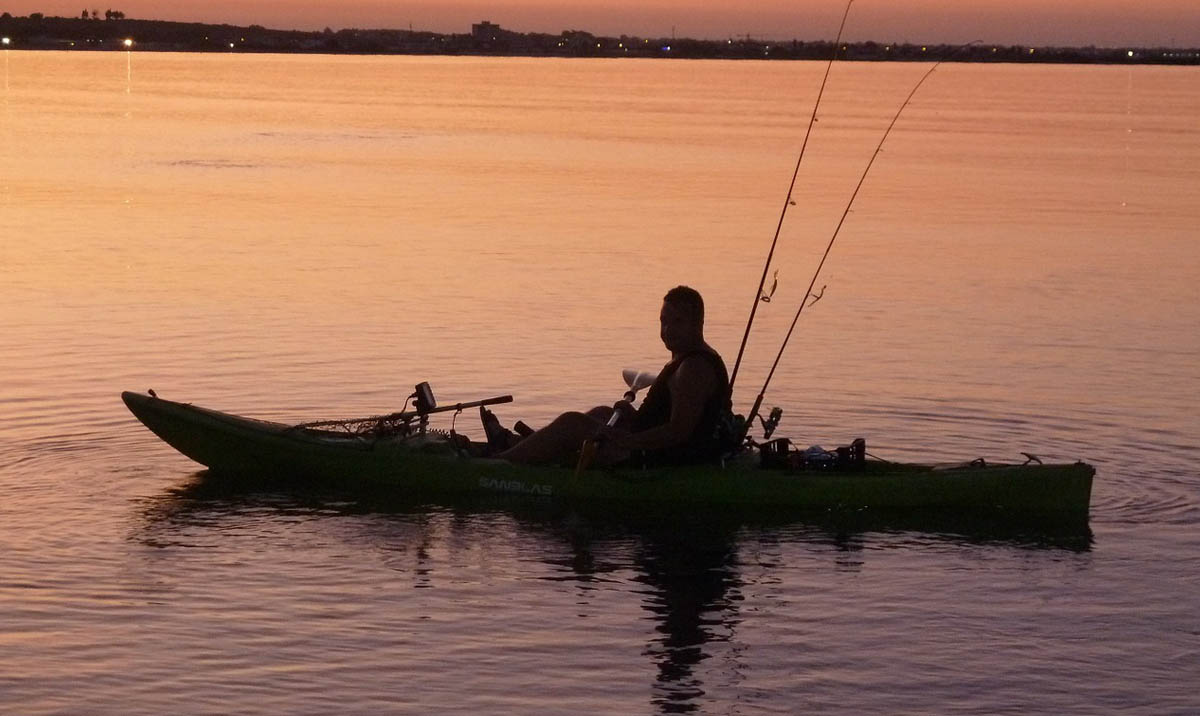By Mike Kogan and Brad Hatton
Kayak fishing in the ocean and targeting big game like Tarpon is a whole different ballgame than fishing inshore. Granted here on the east coast we don’t have the monster surf or cold water our yak fishing comrades experience on the west coast, but fishing in the Atlantic has its own challenges that kayak anglers need to consider.
A group of relatively inexperienced local yakkers hit the beach last year and learned the hard way that beach launches are not the easiest thing to do. We regularly hear sometimes tragic reports about surfers, kayakers, and swimmers where circumstances spun out of their control. Suffering some bumps and bruises, not to mention broken poles, lost gear, and seasick paddlers can be the least of your worries. Beyond the obvious issues surrounding surf launches, the fish are larger and much, much more aggressive, and no one wants to turn kayak fishing in the ocean into an episode of deadliest catch.
Here’s some questions every yakker should ask themselves before venturing out into the deep blue seas to target big game fish like tarpon, cobia, or king mackeral.
– What do you do if you’re thrown out of the yak going out through the surf? Do you know how to exit the surf quickly and safely?
– What do you do if you’re dumped coming in or going out? A 12′-16′ kayak flying around is dangerous. Most fishing kayaks can’t be surfed very well – do you know how to reenter the surf in rough water?
– Have you planned for the contingency of being dumped in the durf? Is all of your gear inside the kayak or secured? It’s not a question of if it will happen, but when.
– What do you do if a rogue wave flips you while offshore, or a big fish pulls you out of the yak (and it can easily happen fishing a tight drag)? Can you execute a quick deep-water re-entry?
– What happens if sea fog rolls in and you can’t see the beach? Do you carry a waterproof GPS or compass?
– What do you do if the wind gets up quick from the west and you can’t make it to the beach? Do you carry a waterproof VHF radio, a whistle, a signal mirror, or a light for signaling at night? Many day trips end at night, and not through circumstances you plan on. It’s the boater or yakker that plans for the worst and has their wits about them that survive the unplanned events that can happen.
– How far off the beach is too far, and how long will it take you to get back in the event of an emergency?
– Are you a STRONG paddler with very good endurance? If not, you’re putting yourself at great risk.
– Do you know the exact limitations of your kayak (stability, speed, handling in very rough water, etc)
– Do you carry a spare paddle and can you get to it while on the water?
We’re not trying to cast a negative light on kayak beach fishing, but make no mistake, it is quite dangerous. Anybody who tells you otherwise is either naive or hasn’t had enough experience. Is it thrilling? Absolutely, but that thrill comes at a pretty good risk. Is catching a beach tarpon difficult? Not at all if you’re prepared with the right gear. And remember never, never, never fish the beach alone. The worst CAN happen — and coming back safely is worth a lot more than a story that will never be told.
By Mike Kogan and Brad Hatton, www.jaxkayakfishing.com

